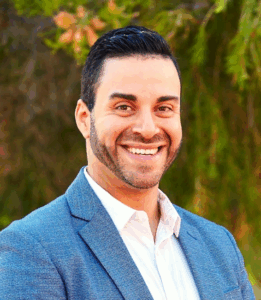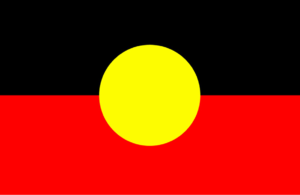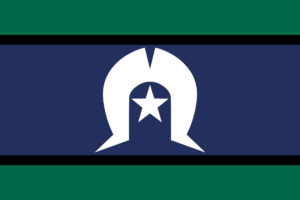At fourteen, I became my father’s eyes. What that taught me about duty, silence, and the missing language of care.
Interested in our initiative? Submit your email to receive an invite to the alive collective.
Menu
Interested in our initiative? Submit your email to receive an invite to the alive collective.
At fourteen, I became my father’s eyes. What that taught me about duty, silence, and the missing language of care.

Written by Michael Elwan – Lived Experience Solutions (LEXs)
This new series is written from lived experience. It includes personal reflections on illness, loss, and caregiving. Please read Michael Elwan’s writer-in-residence series with awareness and care.
Alexandria, 2000.
The afternoon light fell in slanted lines across the tiled floor. My father, a retired Air Force General, said softly, “Something doesn’t feel right”. Two days earlier, he’d brushed off a headache. Now his words had a tremor I’d never heard before. I ran for help.
At the military hospital, the corridor smelled of disinfectant. I was fourteen, standing outside the closed door where doctors were examining him. No one explained much. Hours later, a man in a white coat opened the door and said, almost casually, “He’s had a stroke”. I didn’t know what that meant.
When they finally let me in, my father sat on the bed, his back to the door. He turned his head at the sound of my steps, his eyes unfocused. “Who is it?” he asked. “It’s me, Dad”.
“I cannot see” he said.
That sentence rearranged the world.
The house without a backbone
Everything changed quickly. In Egypt, a father is the spine of a family; when he collapses, everyone leans on air. I stepped into his place without thinking. The pension kept us afloat, but money was not the missing piece. Authority was. Safety was. His presence had been the map of our home.
There were neighbours and relatives at first; kind, busy people who visited, promised help, and faded as months passed. My mother was fighting her own unseen battles, and I learned not to add to her worries. I studied when I could, but my attention stayed at home.
Each morning, I prepared his medication, helped him pray, guided him to the bathroom. I became his reader, his hand, his sight.
There was no talk of services or respite. I didn’t even know what those words meant. We had a phrase instead: Ibnu dayman ma’ah – his son is always with him. It sounded noble, and it trapped me.
Invisible work
My father rarely spoke of his blindness. The man who once commanded squadrons now moved quietly, avoiding mirrors and visitors. I learned early that silence was his armour. To talk about loss felt like betrayal.
No one from the hospital ever asked how we were managing. Their focus stayed on blood tests and medication refills. No social worker, no community nurse, no pamphlet about support for young carers. Isolation settled in. I stopped noticing my own tiredness. My teenage wants shrank to a single goal: keep him safe, keep him proud. The system saw a patient with a disability. I saw the man who raised me reduced to a diagnosis, and myself shrinking around him.
Learning what care costs
Two years later, when he died, he was still quiet. I was sixteen and thought I had already used up all my grief, but his death proved me wrong. The house felt airless. For weeks, I replayed that first day in the hospital; the closed door, the six hours outside, the wandering eyes. It wasn’t just his sight that had gone; it was the horizon line of my own life.
I didn’t have the language for trauma or anticipatory grief. In Egypt, losing a father made you the man of the house overnight. Everyone congratulated me on being strong. No one asked what it meant to a boy.
What the system didn’t see
Looking back now, as a social worker in Australia, I can see what was missing then – and what, too often, is still missing here. Systems everywhere struggle to recognise carers until they collapse. They see illness as an individual event, not a family ecosystem.
In Egypt, my father’s care revolved around hospital corridors and medication charts. In Australia, I’ve seen another kind of blindness: forms, eligibility tests, and waitlists that make help as distant as ever. Both versions share one flaw; they notice bodies but not relationships.
Prevention could have looked simple: a teacher asking about my absences, a nurse who saw me not as an escort but as a child carrying an adult, a community space where caregiving wasn’t mistaken for coping.
Lessons carried across continents
Migration to Australia gave me distance to translate that experience into language, and then into work. Founding Lived Experience Solutions (LEXs) years later, I wanted to build what didn’t exist when I was that boy; a system that values care as knowledge, not burden.
At LEXs, I offer counselling, peer and social work supervision, and consultancy that bridge lived experience and professional practice. Every session begins with listening for what systems overlook: culture, family roles, faith, and the quiet exhaustion that hides behind responsibility. I train organisations to see carers not as dependents or volunteers, but as partners with wisdom forged through care.
It’s the kind of space that would have helped me at fourteen; a place where someone might have asked what I needed, not just what my father required.
People often ask where my commitment to prevention comes from. It began in those quiet years beside my father’s bed. The same hands that measured his medication now write policies and training programs. The same silence that once isolated me now reminds me what happens when systems rely on stoicism instead of support.
Whether in Cairo or Canberra, prevention of despair starts long before diagnosis. It starts when we recognise that behind every patient is a web of people improvising care. My father taught me that dignity can survive catastrophe, but not invisibility.
Closing reflection
If someone had noticed the fourteen-year-old boy guiding a blind man through the market, not as a symbol of strength but as a child carrying too much, maybe both would have healed differently.
I became a carer before I understood what the word meant. Two decades later, I use it with care; it carries the weight of love, loss, and every system that mistook silence for resilience.
What I wanted then is what I still work toward now: a world where care begins with attention, and no child has to become a backbone before growing up.
About the writer

What we carry across borders is often heavier than what we pack in our suitcase
Read moreA statement on the state of mental health “reform” and the value of lived experience
Read moreFrom Alexandria to Australia, the same silence follows care – it just speaks a different language
Read moreAt fourteen, I became my father’s eyes. What that taught me about duty, silence, and the missing language of care.
Read moreWe want to hear from you – opportunity to attend paid lived-experience focus groups
Read moreJune Forum 2025 recap and new Centre Consortium logo released
Read moreFind out where we’re at and what we’ve heard so far!
Read more
Mental Health Research Grant 2024 Million Minds Mission Round $10M (AU) funding outcome
by Next Generation Researcher Network
Read moreA Call to Action to [Re]form National Mental Health and Well-Being, March 2024
The ALIVE National Centre Next Generation Researcher Network Capacity Building Funding Scheme 2026
Read moreTo address capabilities needs, career pathways, conditions in research organisations and identify lived-experience approaches and practices for research integration
Read moreFind out more about the noticeboard feature and how to contribute
Read moreA capacity building and career development initiative of the ALIVE National Centre for Mental Health Research Translation
Read moreThis is a monthly event focused on bringing people together to discuss and translate the findings in mental health research.
The ALIVE National Centre is funded by the NHMRC Special Initiative in Mental Health.
The ALIVE National Centre for Mental Health Research Translation acknowledges the Traditional Owners of the land on which we work, and pay our respects to the Elders, past and present. We are committed to working together to address the health inequities within our Aboriginal and Torres Strait Islander communities.
WARNING: Aboriginal and Torres Strait Islander viewers are warned that this site may contain images and voices of deceased persons.
This map attempts to represent the language, social or nation groups of Aboriginal Australia. It shows only the general locations of larger groupings of people which may include clans, dialects or individual languages in a group. It used published resources from the eighteenth century-1994 and is not intended to be exact, nor the boundaries fixed. It is not suitable for native title or other land claims. David R Horton (creator), © AIATSIS, 1996. No reproduction without permission. To purchase a print version visit: https://shop.aiatsis.gov.au/



The ALIVE National Centre for Mental Health Research Translation is funded by the National Health and Medical Research Council (NHMRC) Special Initiative in Mental Health GNT2002047.
ALIVE Next Generation Researcher Network Application Form Click here
For University based research higher degree students, early/mid-career mental health researchers
ALIVE Lived Experience Research Collective Application Form Click here
For University and community based lived-experience or carer-focused mental health researchers at all career stages
ALIVE Collective Application Form Click here
For any individuals or organisations with a general interest in supporting the special initiative in mental health
ALIVE Implementation and Translation Network (ITN) Application Form Click here
For sector, service delivery organisations in mental health serving people across the life course and priority populations
If you have a general enquiry about The Alive National Centre for Mental Health Research Translation, please submit an enquiry below
Not a member of the ALIVE National Centre? Register now
ALIVE Next Generation Researcher Network Application Form Click here
For University based research higher degree students, early/mid-career mental health researchers
ALIVE Lived Experience Research Collective Application Form Click here
For University and community based lived-experience or carer-focused mental health researchers at all career stages
ALIVE Collective Application Form Click here
For any individuals or organisations with a general interest in supporting the special initiative in mental health
ALIVE Implementation and Translation Network (ITN) Application Form Click here
For sector, service delivery organisations in mental health serving people across the life course and priority populations
If you have a general enquiry about The Alive National Centre for Mental Health Research Translation, please submit an enquiry below